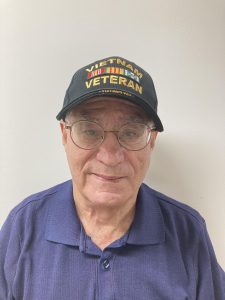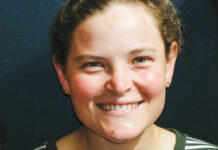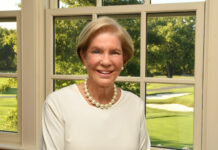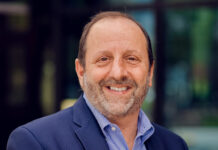Alan Rivkin, 75, fought in an unpopular war in Vietnam. For decades, he wouldn’t speak of his service. Protesters in the antiwar movement spat on veterans and called them “baby killers” when they returned from Southeast Asia.

Today, there is more recognition of the service and sacrifices of Americans who fought in a war against communism that bitterly divided Americans.
More than 50 years after he served in Vietnam, Rivkin is acknowledged by people who recognize his veteran’s ribbon cap. “In the past five or 10 years, I’m finally able to hear the words, ‘Thank you for your service,’ ” he said.
“It’s a big shock compared to the way it was when I came home,” said Rivkin, a resident of Owings Mills. He belongs to Moses Montefiore Anshe Emunah Hebrew Congregation and Beth Tfiloh Congregation in Pikesville.
“There was really a lot of anti-war sentiment going around, and I really didn’t talk about my service for a number of years,” he said.
He responded three years ago to outreach from Jewish War Veterans Maryland Free State Post 167 in Baltimore. His friend Michael Zippert, junior vice commander for the State of Maryland, encouraged him to join Post 167. “He was saying things are a lot different. I was very hesitant on joining for all these years.”
Rivkin is glad that he did. He enjoys the camaraderie and opportunity to serve other veterans, as well as active service members and their families. Post members, 90 on the roster, meet on Zoom or at the Jewish Community Center of Greater Baltimore in Owings Mills.
In October 1968, Rivkin was drafted into the Army two years after he graduated from the predominately Jewish Forest Park High School. At the time, he worked in an electronic parts warehouse and took night classes at the Community College of Baltimore.
“I wasn’t sure what I wanted to do with my life. I had a little growing up to do,” he acknowledged.
Rivkin was stationed at Fort Bragg, N.C. It took him 16 weeks to finish his eight-week basic training. He said that his attempts to keep kosher made him sick from poor nutrition.
“I wanted kosher food, and it was difficult to get. There were times when I didn’t eat,” said Rivkin, who identifies Jewishly as Modern Orthodox. He enlisted the help of Rabbi Glenn Stengel, a chaplain at Fort Bragg, to obtain kosher food.
Rivkin was assigned to the 124th Signal Battalion, 4th Infantry Division Headquarters Company as a Specialist 4th Class stationed in Camp Enari in Pleiku. He worked in cryptography and coded communications equipment.
Keeping kosher was again a challenge, he recounted. “I had a warrant officer who bent over backwards to get me a kosher kitchen in the secure area where I was. He told me ‘First of all, it’s got to be clean if I inspect it. And, if you’re cooking something good, you better set an extra place because I’m going to come and join you.’ I was able to prepare halfway decent meals.”
Rivkin often led services on the weekends. Working with Jewish chaplains, he coordinated getting 500 Jewish troops to High Holiday services in the coastal city of Nha Trang.
“You had Orthodox, Conservative, Reform, unaffiliated people,” he said. “We all got together for Jewish services. I saw some people that I actually went to high school with.”
The Shabbat services he led were well-received, but not by all. “I got into a fight with one of my sergeants who yelled, ‘Who authorized these services on Saturday mornings and Friday nights?’ I answered, ‘the same person that authorizes church services on Sunday.’ ”
Rivkin recalled getting grief from another superior for lighting a menorah. “He said ‘blow it out,’ and I said, ‘No, you blow it out.’ He looked at me and walked away. He knew what they were. It was challenging.”
During that time, of course, Rivkin missed his friends, family and being home. “My life was at a standstill, and I just wanted to get my life back in order when I came home.”
He said he had no political views at the time of the war: “It was just one of my obligations that I had to do because I was in the military.”
After completing his tour of duty in May 1970, he came back to Baltimore. With the GI bill, he earned a degree in elementary education at Towson State University.
Rivkin worked for 38 years as a revenue auditor for the Comptroller of Maryland before retiring. His wife, Ilene, worked as a retirement coordinator for the state Department of Public Safety; and his daughter, Stacy, is a social worker for the U.S. Veteran’s Administration.
Rivkin says he is proud to be a Jewish war veteran: “People have this idea that Jews did not serve in the military — that they managed to get out of it. But it’s to be known that a lot of Jews did serve, and it’s something that we should be very proud of.”
To get involved with JWV Post 167, call Post Commander Chuck Sandler at (410) 746-0809 or email: [email protected].
Ellen Braunstein is a freelance writer.







